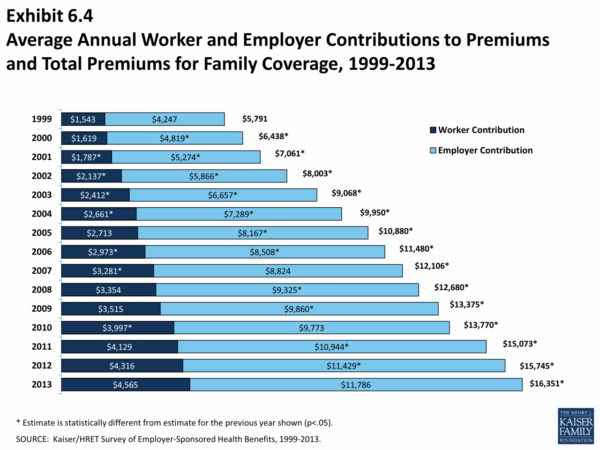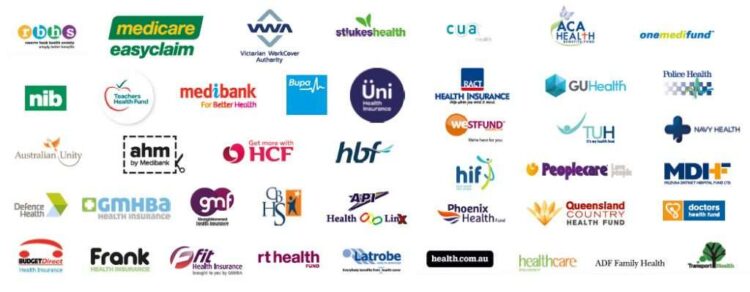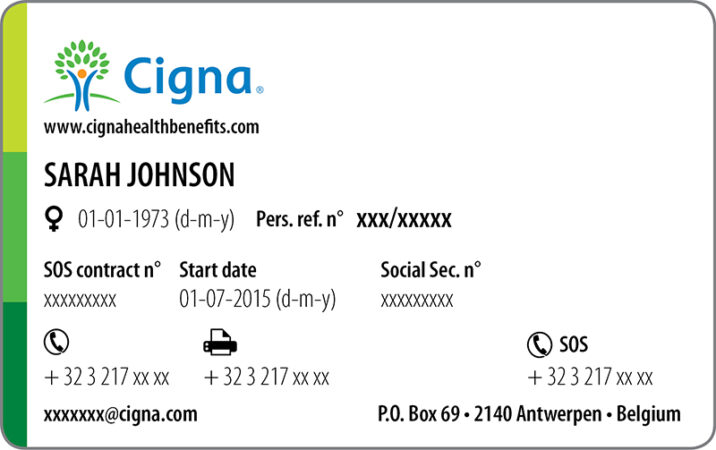
Do you have to buy health insurance through the marketplace? The answer depends on your individual circumstances, and understanding the ins and outs of the Affordable Care Act (ACA) is crucial. The ACA created health insurance marketplaces, which are online platforms where individuals can compare and purchase health insurance plans. These marketplaces offer a variety of plans from different insurance companies, and they are designed to make it easier for people to find affordable coverage.
Navigating the complexities of health insurance can be daunting, especially with the various options available. Understanding your eligibility, the advantages and disadvantages of marketplace plans, and the enrollment process is key to making an informed decision. We’ll delve into these aspects, shedding light on the intricacies of marketplace coverage.
Advantages and Disadvantages of Marketplace Plans
The Health Insurance Marketplace, also known as the Affordable Care Act (ACA) Marketplace, offers a variety of health insurance plans from different insurance companies. These plans are designed to meet the needs of individuals and families across the country. Choosing a plan from the Marketplace can be a good option for many, but it’s important to weigh the pros and cons before making a decision.
Cost Savings Associated with Marketplace Plans
Marketplace plans are designed to make health insurance more affordable for individuals and families. The Affordable Care Act provides financial assistance in the form of tax credits to help offset the cost of premiums. These credits are available to individuals and families who meet certain income requirements. The amount of the tax credit varies based on income and the plan chosen.
- Tax Credits: Individuals and families who qualify for tax credits can significantly reduce their monthly premiums, making health insurance more affordable. These credits are based on income and family size, with lower-income households receiving more substantial assistance.
- Cost-Sharing Reductions: Some marketplace plans also offer cost-sharing reductions, which lower the out-of-pocket expenses such as deductibles, copayments, and coinsurance. These reductions are available to individuals and families who meet certain income requirements.
Limitations of Marketplace Plans
While Marketplace plans offer potential cost savings, there are also limitations to consider. One of the most significant drawbacks is the limited provider networks.
- Limited Provider Networks: Marketplace plans often have narrower provider networks than traditional health insurance plans. This means that you may not be able to see your preferred doctor or specialist, or you may need to travel further for care.
- Limited Plan Choices: The number of plans available in the Marketplace varies by location. In some areas, there may be limited plan options, which could restrict your choices and make it harder to find a plan that meets your specific needs.
Benefits of Marketplace Plans
Marketplace plans offer several benefits, including access to affordable health insurance, protection from pre-existing conditions, and essential health benefits.
- Affordable Health Insurance: Marketplace plans provide access to affordable health insurance, with financial assistance available to lower-income individuals and families. This helps ensure that everyone has access to essential health care.
- Protection from Pre-existing Conditions: Under the Affordable Care Act, health insurance plans sold through the Marketplace cannot deny coverage or charge higher premiums based on pre-existing conditions. This ensures that individuals with health conditions can access affordable health insurance.
- Essential Health Benefits: Marketplace plans are required to cover essential health benefits, including preventive care, hospitalization, prescription drugs, and mental health services. This ensures that individuals have access to a comprehensive range of health care services.
Drawbacks of Marketplace Plans
While Marketplace plans offer many benefits, there are also some drawbacks to consider.
- Limited Provider Networks: Marketplace plans often have narrower provider networks than traditional health insurance plans. This means that you may not be able to see your preferred doctor or specialist, or you may need to travel further for care.
- Potential for Higher Deductibles and Copayments: Some Marketplace plans may have higher deductibles and copayments than traditional health insurance plans. This means that you may have to pay more out-of-pocket for medical care before your insurance kicks in.
- Open Enrollment Period: Marketplace plans have a specific open enrollment period during which you can enroll or make changes to your plan. If you miss the open enrollment period, you may not be able to enroll in a plan unless you qualify for a special enrollment period.
Enrollment Process and Timeline: Do You Have To Buy Health Insurance Through The Marketplace

The enrollment process for marketplace plans is relatively straightforward, but it’s essential to understand the different enrollment periods and deadlines. You can enroll in a plan during the open enrollment period or through a special enrollment period.
Open Enrollment Period
The open enrollment period for marketplace plans is typically from November 1st to January 15th of each year. During this time, you can apply for coverage or change your existing plan. If you don’t enroll during this period, you’ll have to wait until the next open enrollment period unless you qualify for a special enrollment period.
Special Enrollment Periods
There are several situations that qualify you for a special enrollment period, allowing you to enroll outside the open enrollment period. These include:
- Loss of job-based health insurance
- Moving to a new coverage area
- Getting married or divorced
- Having a baby or adopting a child
- Turning 26 and aging off a parent’s plan
- Experiencing a change in household income
You must provide documentation to verify your eligibility for a special enrollment period.
Updating or Changing Coverage
You can update your information or change your marketplace coverage during the open enrollment period or through a special enrollment period. You can also update your information at any time during the year if there are significant changes in your life, such as a change in income or family size.
Financial Assistance and Tax Credits
The Affordable Care Act (ACA) offers financial assistance to help make health insurance more affordable for many Americans. These subsidies are available through the Health Insurance Marketplace, which allows individuals and families to compare and choose plans from various insurance providers. The amount of financial assistance you qualify for depends on your income and family size.
Income-Based Subsidies
Income-based subsidies are available to help individuals and families afford their health insurance premiums. These subsidies are calculated based on your household income and the cost of health insurance plans in your area. The higher your income, the less financial assistance you will receive.
- Premium Tax Credits: These tax credits are designed to help lower the cost of your monthly health insurance premiums. You can receive these credits directly from your insurance company as a reduction in your monthly premium or as a tax credit when you file your taxes. The amount of the tax credit you receive will depend on your income, family size, and the cost of the plan you choose.
- Cost-Sharing Reductions: These reductions lower the amount you pay for out-of-pocket expenses, such as deductibles, copayments, and coinsurance. These reductions are available to individuals and families with lower incomes and are calculated based on your household income and the cost of your health insurance plan.
Calculating Tax Credits
To calculate your tax credit, you will need to provide information about your income and family size. The Marketplace will use this information to determine your eligibility for tax credits and calculate the amount you will receive. The tax credit is calculated based on a sliding scale, meaning the amount of the credit decreases as your income increases.
Tax credit amount = (Plan cost – Maximum allowed cost) x % of income
For example, if your household income is $40,000 and the cost of your health insurance plan is $500 per month, your tax credit might be $100 per month. This means you would only pay $400 per month for your health insurance.
Comparing Marketplace Plans

Choosing the right health insurance plan from the Marketplace can be overwhelming, as numerous options exist with varying premiums, deductibles, and coverage levels. To make an informed decision, it’s essential to compare different plans and understand their key features.
Comparing Plans Based on Key Factors
To effectively compare Marketplace plans, consider these crucial factors:
- Premiums: This is the monthly cost you pay for your health insurance. Premiums vary based on factors like age, location, plan type, and tobacco use.
- Deductibles: This is the amount you pay out-of-pocket before your insurance coverage kicks in. Higher deductibles typically result in lower premiums, while lower deductibles lead to higher premiums.
- Co-pays and Co-insurance: Co-pays are fixed amounts you pay for specific services, while co-insurance is a percentage you pay for covered services after meeting your deductible.
- Coverage: This refers to the types of medical services covered by your plan. Some plans offer comprehensive coverage, while others may have limitations.
- Network: This refers to the doctors, hospitals, and other healthcare providers included in your plan. Ensure your preferred healthcare providers are in the network.
Utilizing Marketplace Website and Tools
The Health Insurance Marketplace website provides powerful tools to compare plans effectively:
- Plan Finder: This tool allows you to enter your zip code, age, and income to see available plans in your area.
- Side-by-Side Comparison: The website enables you to compare plans side-by-side, highlighting key differences in premiums, deductibles, and coverage.
- Plan Details: Click on any plan to access detailed information, including a summary of benefits, cost-sharing details, and provider network.
Importance of Individual Needs and Coverage Requirements
When comparing plans, it’s crucial to consider your individual health needs and coverage requirements.
- Pre-existing Conditions: If you have pre-existing conditions, ensure the plan covers your specific needs.
- Prescription Drugs: If you rely on prescription medications, check the plan’s formulary (list of covered drugs) and associated costs.
- Healthcare Usage: Consider your usual healthcare usage. If you frequently visit the doctor or require specialized care, a plan with lower deductibles and co-pays might be beneficial.
- Budget: Assess your budget and choose a plan that fits your financial situation. Consider the trade-off between premium costs and out-of-pocket expenses.
Remember, the best Marketplace plan for you depends on your individual circumstances and priorities. By carefully comparing plans and considering your needs, you can make an informed decision that ensures you have the right health insurance coverage.
Alternatives to Marketplace Plans

The Health Insurance Marketplace is not the only option for obtaining health insurance. Several alternatives offer different benefits and drawbacks, depending on your individual circumstances. Here are some of the most common options:
Employer-Sponsored Plans, Do you have to buy health insurance through the marketplace
Employer-sponsored health insurance plans are offered by many companies to their employees. These plans are often more affordable than individual plans and may offer a wider range of benefits.
Advantages of Employer-Sponsored Plans
- Lower Premiums: Employer-sponsored plans often have lower premiums than individual plans due to group purchasing power.
- Employer Contributions: Many employers contribute to the cost of their employees’ health insurance, further reducing the premium burden.
- Wider Range of Benefits: Employer-sponsored plans typically offer a wider range of benefits than individual plans, such as dental, vision, and prescription drug coverage.
- Tax Advantages: Premiums paid by employers are generally tax-deductible for the employer, and premiums paid by employees are often tax-deductible as well.
Disadvantages of Employer-Sponsored Plans
- Limited Choice: Employers usually offer a limited number of plans, and you may not have the option to choose a plan that best meets your needs.
- Job Security: Your health insurance coverage is tied to your employment. If you lose your job, you may lose your health insurance as well.
- Potential for Higher Deductibles and Co-pays: While premiums may be lower, employer-sponsored plans can sometimes have higher deductibles and co-pays than individual plans.
Individual Health Insurance Plans
Individual health insurance plans are purchased directly from an insurance company, without the involvement of an employer. These plans offer greater flexibility but can be more expensive than employer-sponsored plans.
Advantages of Individual Health Insurance Plans
- Flexibility: You have the freedom to choose a plan that best meets your needs and budget, regardless of your employer.
- Portability: Your health insurance coverage is not tied to your employment, so you can take it with you if you change jobs or become self-employed.
- Variety of Options: There are many different individual health insurance plans available, with a wide range of coverage options and premiums.
Disadvantages of Individual Health Insurance Plans
- Higher Premiums: Individual health insurance plans are typically more expensive than employer-sponsored plans due to the lack of group purchasing power.
- Health Status Considerations: Insurance companies may consider your health status when setting your premiums, which can result in higher premiums for individuals with pre-existing conditions.
- Potential for Higher Deductibles and Co-pays: Individual plans may have higher deductibles and co-pays than employer-sponsored plans.
Other Alternatives
In addition to employer-sponsored and individual plans, there are other options for obtaining health insurance:
- Short-Term Health Insurance: Short-term health insurance plans provide temporary coverage for a limited period, typically 30 to 364 days. These plans are generally less expensive than traditional health insurance but offer limited coverage and may not cover pre-existing conditions.
- COBRA: The Consolidated Omnibus Budget Reconciliation Act (COBRA) allows you to continue your employer-sponsored health insurance for a limited time after you leave your job, even if you are no longer employed by the company. However, COBRA premiums are typically much higher than the premiums you paid while you were employed.
- Medicaid: Medicaid is a government-funded health insurance program for low-income individuals and families. Eligibility requirements vary by state.
- Medicare: Medicare is a federal health insurance program for people aged 65 and older and certain individuals with disabilities. It provides coverage for a wide range of medical expenses, including hospitalization, doctor visits, and prescription drugs.
Choosing the Best Option
The best health insurance option for you depends on your individual circumstances, including your age, health status, income, and employment situation. It is important to consider the following factors when making your decision:
- Cost: Consider the premiums, deductibles, co-pays, and out-of-pocket maximums for each plan.
- Coverage: Make sure the plan covers the medical services you need, such as doctor visits, hospitalization, and prescription drugs.
- Network: Choose a plan with a network of doctors and hospitals that you are comfortable with.
- Flexibility: If you are likely to change jobs or become self-employed, consider a portable health insurance plan.
Outcome Summary
Ultimately, whether or not you need to purchase health insurance through the marketplace depends on your individual needs and circumstances. By understanding the nuances of marketplace plans, you can make a well-informed decision about your health insurance coverage. Remember, your health is paramount, and having the right insurance plan can provide peace of mind and financial security.
Clarifying Questions
What if I already have health insurance through my employer?
If you have employer-sponsored health insurance, you may not need to purchase coverage through the marketplace. However, it’s still worth comparing marketplace plans to see if they offer more affordable or comprehensive coverage.
Can I get financial assistance to pay for marketplace plans?
Yes, you may be eligible for financial assistance in the form of tax credits and subsidies. The amount of assistance you receive depends on your income and household size.
What happens if I don’t have health insurance?
Most individuals are required to have health insurance under the ACA. If you don’t have coverage, you may face a penalty when you file your taxes. However, there are exemptions for certain situations.





